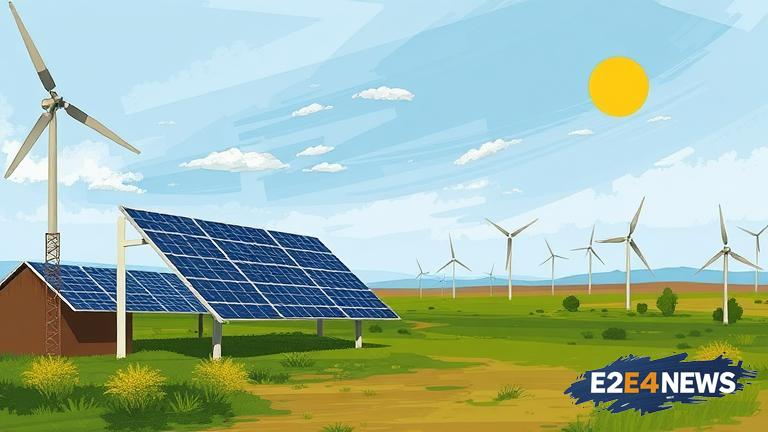The African continent is witnessing a significant shift towards renewable energy, driven by the need to address the pressing issues of energy access, climate change, and sustainable development. With many countries still struggling to provide reliable and affordable electricity to their citizens, renewable energy has emerged as a viable solution. Solar and wind power are leading the charge, with countries like South Africa, Egypt, and Morocco investing heavily in these sectors. The African Renewable Energy Initiative, launched in 2015, aims to achieve at least 300 GW of renewable energy capacity by 2030. This ambitious target is expected to create new economic opportunities, stimulate growth, and improve energy security. Moreover, the adoption of renewable energy can help reduce greenhouse gas emissions, contributing to global efforts to combat climate change. The International Renewable Energy Agency (IRENA) has pledged to support African countries in their transition to a low-carbon economy. Several African nations have set impressive renewable energy targets, with Rwanda aiming for 50% of its energy mix to come from renewables by 2024. Kenya, on the other hand, plans to generate 70% of its electricity from renewables by 2030. The private sector is also playing a crucial role in driving the growth of renewable energy in Africa, with companies like Vestas and Siemens Gamesa investing in wind and solar projects across the continent. Furthermore, innovative financing models, such as green bonds and crowdfunding, are being explored to support the development of renewable energy projects. The African Development Bank has launched a $500 million facility to support the development of renewable energy projects in Africa. Additionally, the European Union has committed to providing significant funding for renewable energy projects in Africa, as part of its External Investment Plan. The growth of renewable energy in Africa is also expected to create new job opportunities, with the solar industry alone expected to create over 100,000 jobs by 2025. However, despite the progress made, significant challenges remain, including the need for greater investment, better infrastructure, and more effective policies to support the growth of renewable energy. The African Union has recognized the importance of renewable energy in achieving the continent’s development goals, and has called for greater cooperation and coordination among member states to support the growth of the sector. In conclusion, the renewable energy revolution in Africa is gaining momentum, driven by the need for sustainable development, energy access, and climate action. With the right policies, investments, and partnerships in place, Africa can unlock its vast renewable energy potential, driving growth, creating jobs, and improving the lives of its citizens. The future of energy in Africa is renewable, and the continent is poised to become a global leader in the transition to a low-carbon economy. As the demand for energy continues to grow, African countries must prioritize the development of renewable energy sources, to ensure a sustainable and prosperous future for generations to come. The benefits of renewable energy are numerous, and include reduced greenhouse gas emissions, improved air quality, and enhanced energy security. Moreover, the adoption of renewable energy can help to reduce the continent’s dependence on fossil fuels, improving trade balances and reducing the impact of price volatility. The African renewable energy market is expected to continue growing, driven by declining technology costs, improving efficiency, and increasing demand for clean energy. As the continent continues to transition towards a low-carbon economy, new opportunities for innovation, investment, and cooperation will emerge, driving growth and development in the years to come.
